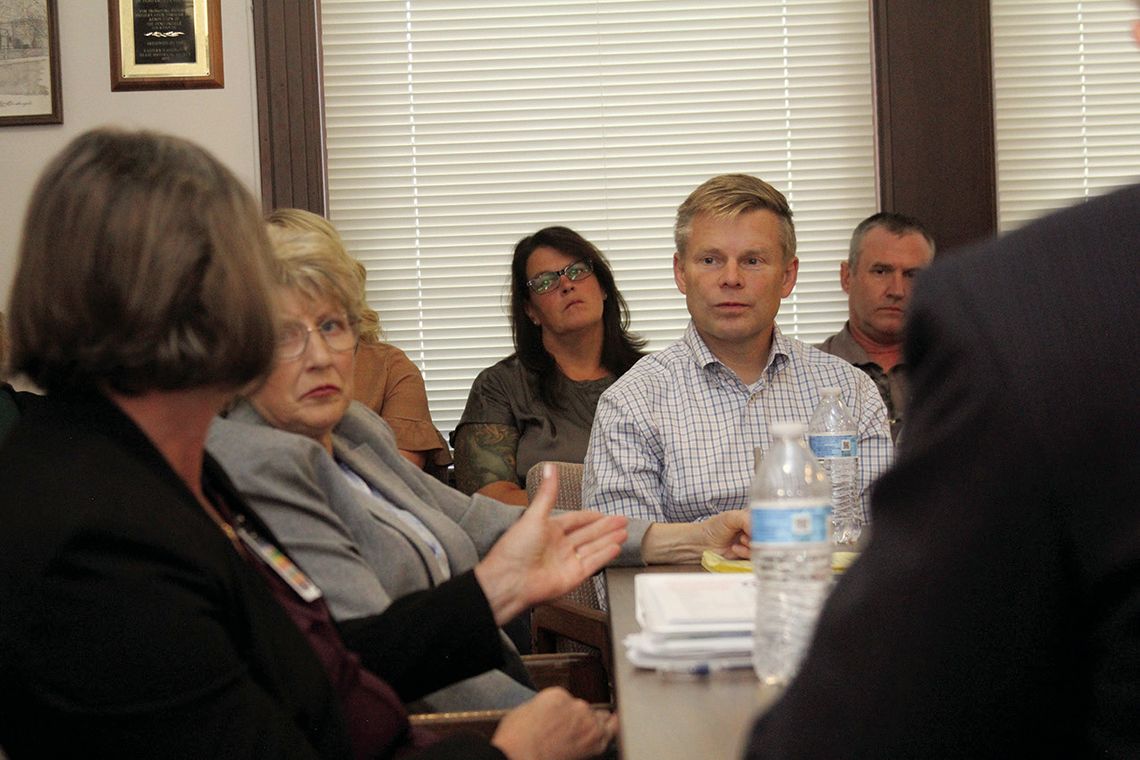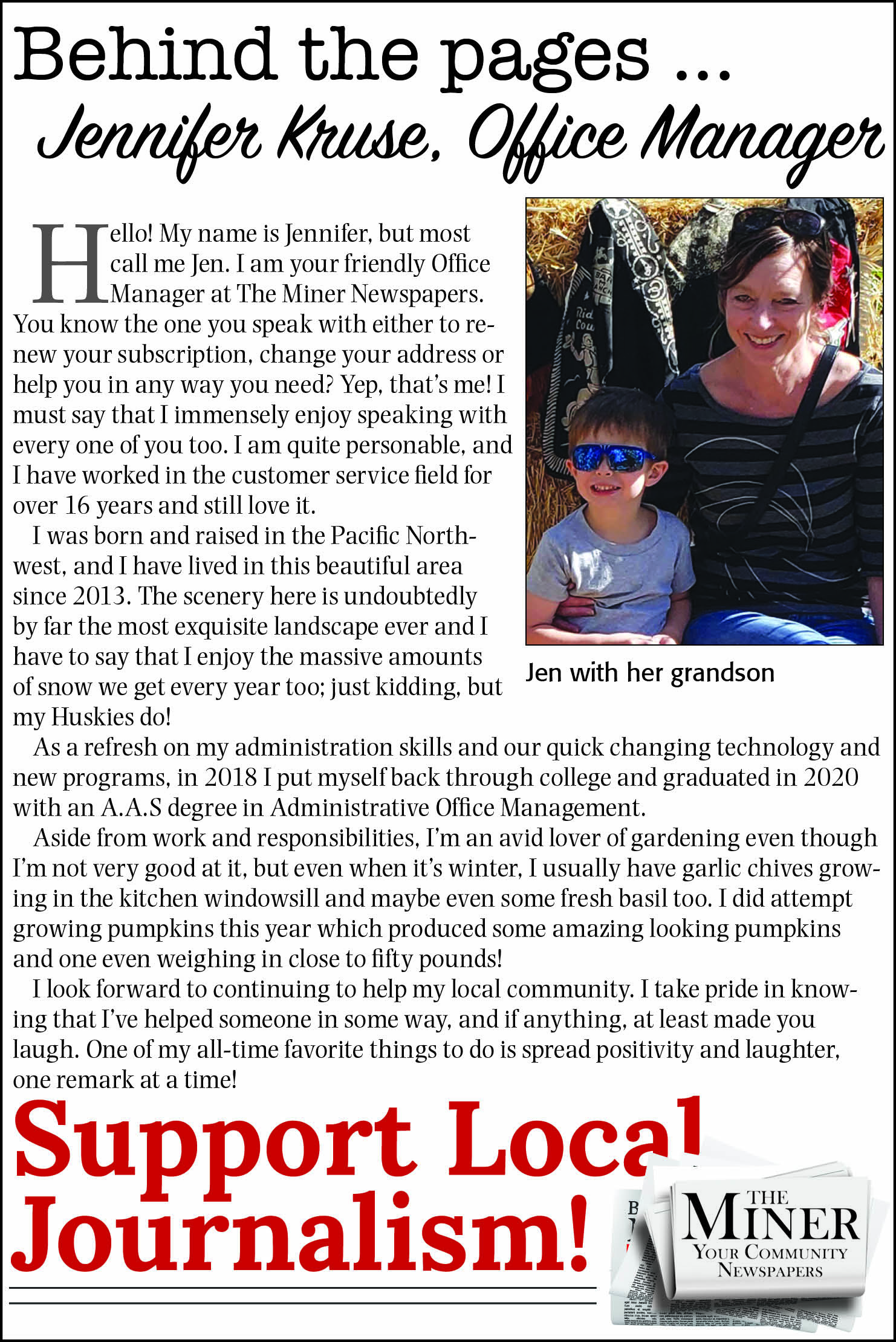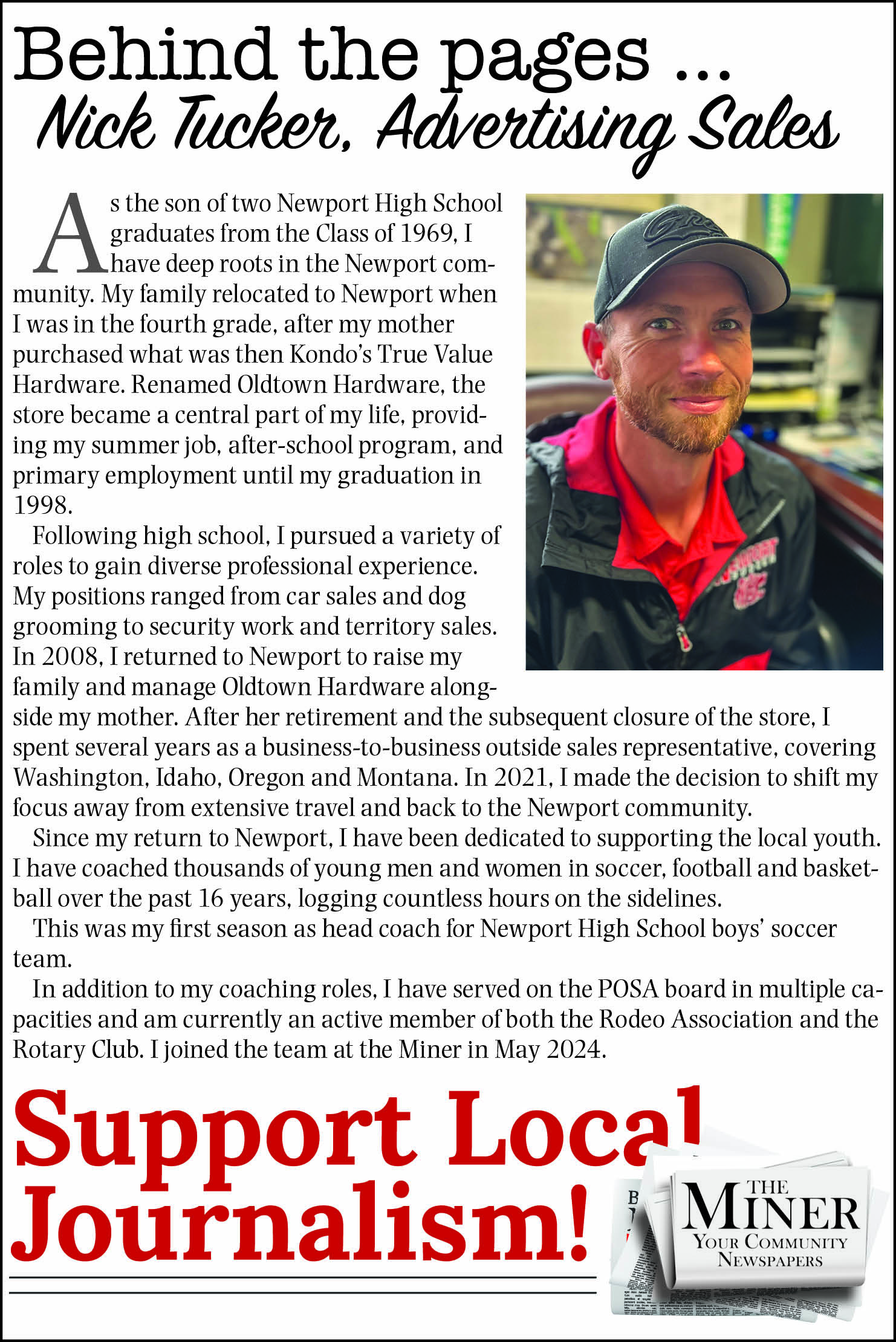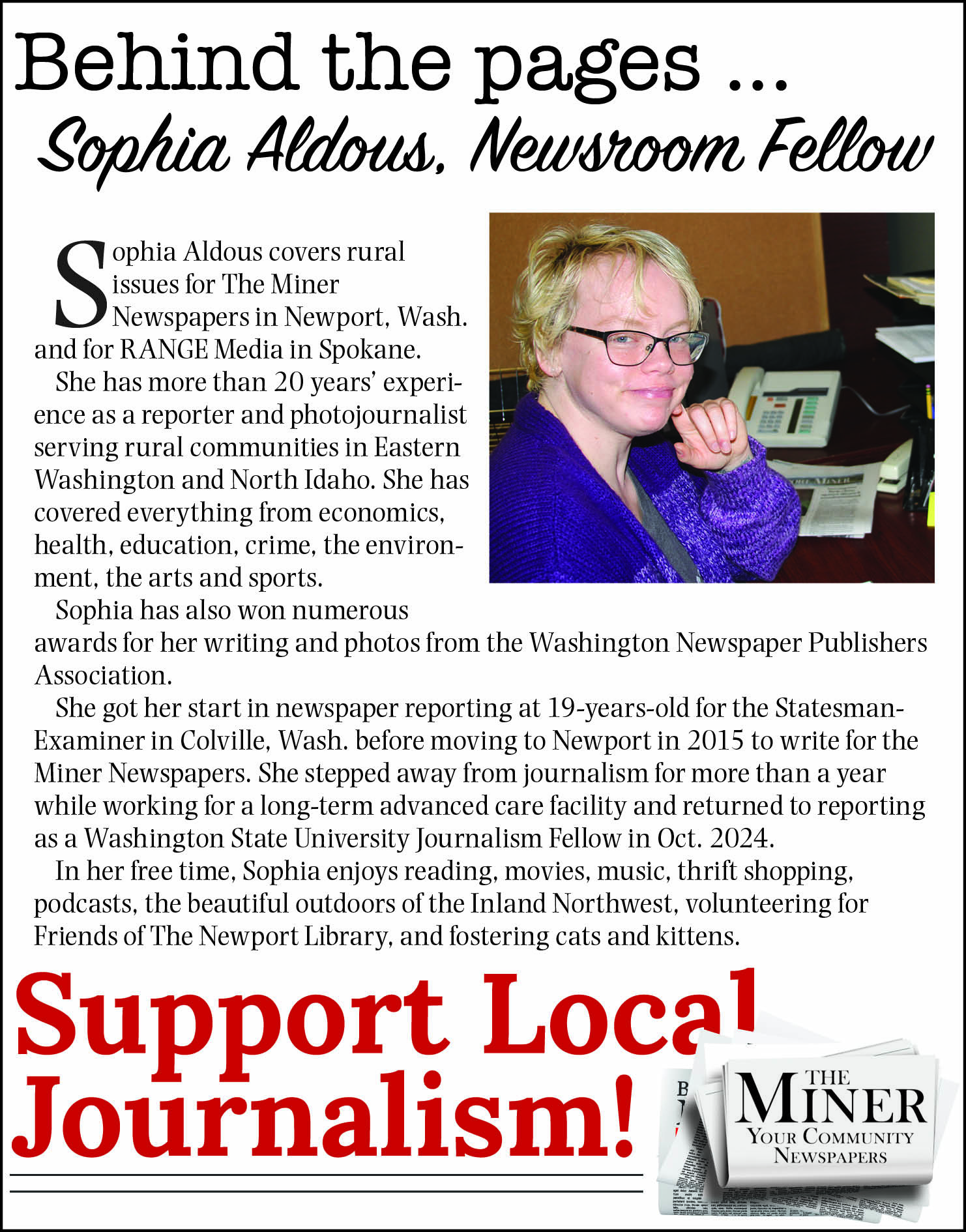State senate majority leader hears Pend Oreille County concerns
NEWPORT — State Sen. Jamie Pedersen, D-Seattle, is the senate majority leader. Republican county commissioner Robert Rosencrantz had invited Pedersen to hear concerns of Pend Oreille County elected officials and others during a wide-ranging meeting Thursday, Sept. 25. He was joined by state Sen. Shelly Short, R-Addy, who represents the 7th Legislative District, which includes Pend Oreille County.
“The folks here in my district, they feel like they have no say, they feel disenfranchised from the state,” Brian Smiley, the county commissioner from north county, District 3 said at the end of the two-hour meeting. “And it’s getting worse. It’s really important to me that we face that.”
One after another, county officials, mostly elected Republicans, told Pedersen some of the problems they were having with the state.
For his part, Pedersen listened, occasionally asking questions.
“I guess my hope is that this is just the beginning of an ongoing conversation,” Pedersen said at the end of the meeting.
The meeting started with Greater Newport Area Chamber of Commerce president Madi Campbell, who was there representing the Kalispel Tribe. Campbell is a planner for the tribe.
She spoke of the tribe’s aspiration for growth and development. She said the tribe had common areas of interest with the community, including infrastructure and the rebuilding of the Usk Bridge.
“Another challenge we face currently is housing,” she said. “We’re all challenged by the cost to develop here.”
The challenge is two-fold, she said. “We need to address the current shortages while planning for the future.”
She also spoke of the need for collaboration, in replacing the Usk Bridge and in economic efforts. She pointed to the tribe’s collaboration with the Port of Pend Oreille to explore reopening the railroad line north of Cusick as an example of collaboration.
Next up was Kim Manus, CEO of Newport Hospital and Health Services. She pointed out some of the challenges facing the hospital district with the new federal cuts coming to Medicaid.
She said the charity care will increase in Washington state. The state has also made it tougher for the hospital. The state requires that the hospital provide care regardless of a person’s ability to pay. With Newport on the border with Idaho, the hospital district is seeing an increase in uninsured patients, many from Idaho.
“Bonner County brings in about 30% of the business that we do at our hospital,” Manus said. She said the district sees 34,000 visits through its clinic every year.
She echoed Campbell’s comments regarding housing. Manus said there had been situations where the hospital wanted to hire healthcare providers but they couldn’t find housing.
Sen. Short asked about money coming from the federal government that came along with the Big Beautiful Bill Act.
Manus said each state will apply for the Rural Transformation funds in November. The money will be equally distributed among the states that are approved by the federal government. The money can’t be used to backfill for Medicaid money that was cut.
It will be up to the state to determine how to distribute the money, she said. The state needed to make sure it went to rural areas.
Sheriff Glenn Blakeslee was the next to speak.
“There just isn’t enough money to do what we’re expected to do,” Blakeslee said. He said the state was a problem with several things, including paperwork and new mandates. Even when the state provides money, it isn’t just for law enforcement, he said.
“So the courts get some, the public defenders get some,” he said. The money that funds actual cops is much less than that.
He said the requirements to access the state money feel coercive. He says for most rural law enforcement, the requirements are unrealistic.
Pedersen pointed out that law enforcement is a function of county government. He said the 1% cap on property taxes has hampered King County, where he lives.
County commission chair John Gentle said that a 1% increase in Pend Oreille County amounts to $22,000.
“There are counties where that 1 to 3% makes a tremendous difference,” he said. Tripling the 1% in Pend Oreille County wouldn’t do much here. It was a fraction of a salary, he said. “It doesn’t move the needle for us.”
Blakeslee also discussed mental health, outlining some of the problems his department has dealing with mental health situations, which are mostly civil, not criminal.
County Community Development Director Greg Snow talked about the Growth Management Act, which Pend Oreille County is subject to.
“It feels like it was implemented but it was never fine-tuned,” Snow said. “We just keep adding layers to it. While other places it might work, we wrestle with it. It handcuffs us.”
He also talked about the challenges of zoning. He said the comprehensive plan should be allowed to rezone more than annually.
“Would like the state to consider allowing the landowner to do these any time of year,” Snow said.
PUD General Manager Chris Jones said the generation of power mostly happens on the east side of the state while most of it is used on the west side. The Clean Energy Transformation Act rules were forcing the price of power up. Where help from the state was needed, was in cutting through the red tape.
Newport City Administrator Abby Gribi brought up housing.
“Housing is a statewide issue,” she said. She said she had a 500-unit housing project that she had to wait a year “just to get our plan reviewed” by the Department of Ecology.
Others also spoke.
Rosencrantz, who first met Pedersen in 2006, took him on a tour of the county after he heard from the local officials.
.png)














